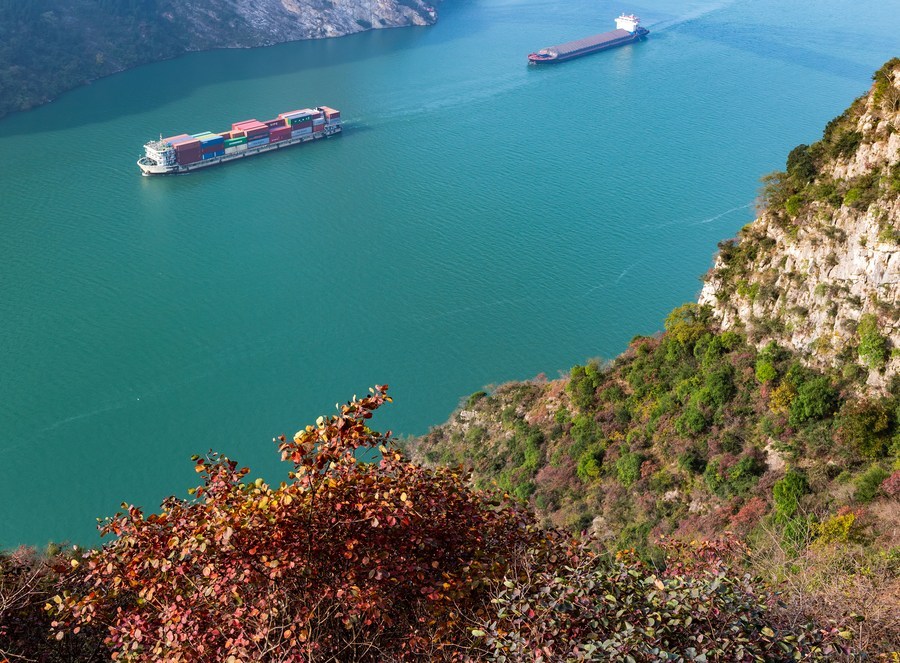
Ships sail through a section of the Xiling Gorge, one of the Three Gorges along the Yangtze River, in Zigui county of Yichang, Central China's Hubei province, Nov 29, 2020. (Photo: Xinhua)
BEIJING, Jan. 11 (Xinhua) -- As the coronavirus pandemic impacts millions across the world and postpones several global events, efforts to tackle other pressing global challenges, such as climate change and species loss, must continue.
A virtual event on climate and biodiversity, the One Planet Summit, is set to be held on Monday. Experts and policy-makers worldwide have high hopes to galvanize action to preserve the Earth in the new year and beyond.
Other similar global events like the UN biodiversity talks in China and the UN Climate Change Conference (COP26) in Britain, which were scheduled for last year, have been rescheduled for this year.
The postponement of these major environmental summits should not lead to delayed action. While it is challenging to juggle a pandemic response and environmental action, the dangers of environmental degradation could grow even deadlier.
Last October, the UN's biodiversity panel warned future pandemics will emerge more often, kill more people and cause even greater damage to the global economy than COVID-19 without a fundamental shift in how humans treat nature.
The good news is that many countries have already started to pivot to a different, cleaner future, with post-pandemic responses that can fuel a transition to a low-carbon world.
In July, European Union leaders reached a recovery deal that included devoting nearly 550 billion euros (671 billion U.S. dollars) to green projects over the next seven years, the largest single climate funding pledge ever made.
At the UN General Assembly in September, China made an ambitious pledge to hit peak emissions before 2030 and achieve carbon neutrality before 2060. Researchers say this alone could likely curb global warming by 0.2 to 0.3 degrees Celsius this century.
At the local level, city managers are exploring innovative ways to green their economies. In the Colombian capital Bogota mayor Claudia Lopez opened nearly 117 km of new bike lanes to help prevent the spread of COVID-19 while simultaneously improving air quality.
Environmental problems affect every living creature on this planet. These problems can only be solved in a collective and decisive manner. It is unfair for the poor and the most vulnerable to suffer most from deadly droughts, heatwaves, floods, rising waters and forest fires while the rich delay or even deny action for economic and political interests.
Just like in the fight against COVID-19, countries must stop paying lip service or finger-pointing. They should show more forethought, demonstrate stronger commitment and take resolute actions to tackle climate change and biodiversity loss.
All life on earth shares a common future. The pandemic has brought into sharp focus the fact that the health, wealth and wellbeing of humanity relies on the health, wealth and wellbeing of their environment. Delay is too costly for both the planet and all of its inhabitants. Relentless action is urgently needed.


